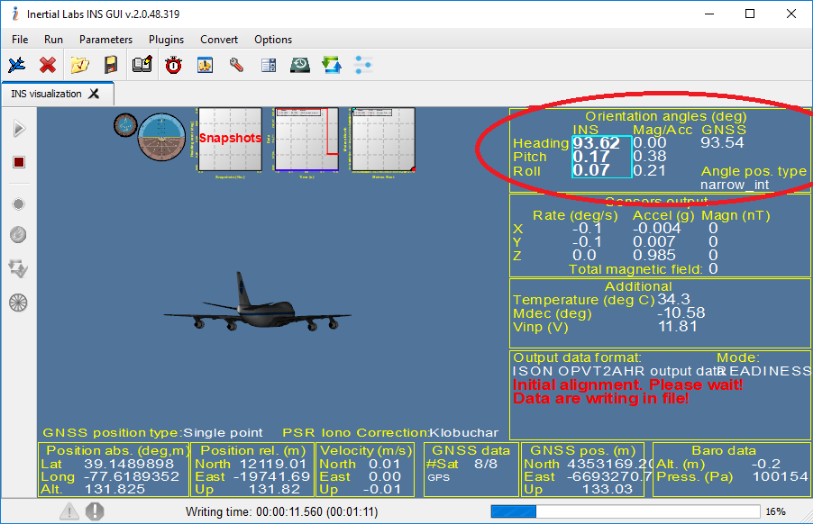Purpose: To understand how to use dual antenna INS as a single antenna INS.
Last Updated: June 2020
The user should unplug the second antenna and leave the primary plugged in. For reference the primary antenna port is labeled as “A1” on the device, and the secondary antenna port is labeled as “A2”. Then, change the heading correction type in the Graphic User Interface (GUI) from “Dual GNSS” to the one that fits your application. To do so, go to the “Options” tab and then select “Correction options” and then change the correction type.
Read More
Topics:
INS,
GNSS,
Heading,
Correction,
Dual,
Single
Purpose: To determine which type of heading correction is best for different applications of the INS.
Last Updated: June 2020
For INS-D/DL: The “Dual GNSS” type of heading correction can be used for any application that allows the installation of the INS and two GNSS antennas with a baseline of at least 1.5 m (it can be static, quasi-static, and slowly moving objects as well as objects with high dynamic). So, any application where two antennas can be installed with a clear view of the sky and less than 1.5 meters away from one each other. When Dual GNSS type is used, the algorithm starts as soon as the GNSS receiver provides a heading solution.
Read More
Topics:
INS,
INS-D,
INS-DL,
INS-B,
INS-P,
GNSS,
Heading,
Magnetometer,
Correction
Purpose: The purpose of this support article is to help the user configure the AHRS to read magnetic heading.Last Updated: November 2019
Customer:
”Hi I have one of your AHRS devices that I am configuring for a down hole measurement instrument. I want to set it up to measure the magnetic heading. I understand that to do this I want to set the declination angle to 0. What do I set the Lat Long to?
Read More
Topics:
AHRS,
Heading,
Latitude,
Magnetic,
Declination,
Longitude
Last Updated: October 2019
Purpose: The Inertial Labs INS has five methods of hard and soft iron calibrations for heading calculations.
1. 3D Calibration
Application: The 3D calibration is designed for carrier objects (typically aerial, or marine) that can operate in full heading, pitch and roll ranges. A possible application using this calibration method is bathymetric surveillance.
Read More
Topics:
INS,
Heading,
soft,
On-The-Fly,
Magnetometer,
iron,
calibration,
2D2T,
2D,
3D,
VG3D
Purpose: Answering common questions about applying external heading input; internal + external GNSS simultaneously; and sending RTCM corrections.
Last Updated: July 2019
Question: Does the INS support external heading input?
Read More
Topics:
GNSS,
Heading,
external,
Input,
RTCM
Purpose: Diagnosing a common issue where the device is connect but heading as seen by device differs drastically compared to the GNSS heading.
Last Updated: July 2019
Common Issues:
1. The antennas are connected, but the heading of the INS starts with 0 (relative heading).
2. The INS heading differs a lot from the GNSS heading.
Read More
Topics:
Problem,
INS,
INS-DL,
Heading


